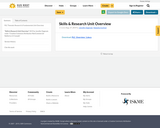
PLC Thematic Research & Fundamentals Unit Overview
- Subject:
- English Language Arts
- Material Type:
- Unit of Study
- Date Added:
- 08/27/2019

PLC Thematic Research & Fundamentals Unit Overview
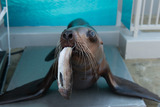
Steller Sea Lions are charismatic marine mammals who have captured the hearts of many by their curious nature and powerful roar. These top predators help to maintain balance in the ecosystem. Their health and stability help indicate to us the health of the ocean as a whole. Explore this interactive activity to learn about Steller Sea Lions, their pinniped cousins, and how our simple choices have a powerful impact on the health and wellbeing of these incredible animals.
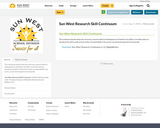
This continuum breaks down the necessary research skills for kindergarten to Grade 8 in Sun West. It includes when to introduce the skill as well as the transfer of responsibility (I do, we do, you do) level expected at each grade.

The document attached below supports students in grades K-12 in finding amazing databases using school network credentials - anywhere and any time! Including:Encyclopedia BritannicaGale in ContextPoints of ViewScience OnlineVideo StreamingMultilingual Books
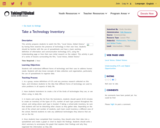
This activity prepares students to watch the film, "Local Voices, Global Visions," by having them examine the presence of technology in their own lives. Students should be familiar with the use of spreadsheets and have a basic working definition of information and communication technology (ICT), using the Understanding page or from their own initial research on the subject. This activity is part of a series of lessons surrounding the film, "Local Voices, Global Visions."
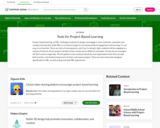
Project-based learning, or PBL, challenges students to design and engage in more authentic, extended, and complex learning. But while PBL is a trusted strategy for increasing student engagement and learning, it's not easy to orchestrate. There are tons of moving pieces, and if you're doing it right, students will be engaging in a variety of interest-driven projects all with various needs and on different schedules. So how do you manage it all? Tech can be a huge help. This list gathers some useful productivity and organization tools that can help both teachers and students keep track of, finish, and assess projects. There are also a few tools designed specifically for PBL, as well as plug-and-play PBL experiences.

A great non-fiction news site with a wide variety of articles written at differentiated Lexile levels.
There are daily quizzes and immediate feedback for students.
The site offers several resources, links and tips for teachers. The critical thinking prompts at the end of each article help spark student discussions and response or reflection opportunities.
Articles are divided into K-4, 5-6, 7-8 and High School.
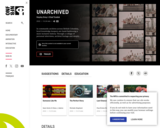
Unarchived examines “traditional” archives in British Columbia, those rooted in European colonial practices upheld by government, academic and other settler institutions. Records preserved in such repositories centre and privilege the stories of the dominant culture, perpetuating the re-telling of biased histories. This film challenges typical archival practice and encourages the viewer to question what is not being told, to make space for diverse voices and to build capacity for alternative archives.

Unarchived examines “traditional” archives in British Columbia, those rooted in European colonial practices upheld by government, academic and other settler institutions. Records preserved in such repositories centre and privilege the stories of the dominant culture, perpetuating the re-telling of biased histories. This film challenges typical archival practice and encourages the viewer to question what is not being told, to make space for diverse voices and to build capacity for alternative archives.

"Save, organize and share content from across the web.
Bookmark, organize and curate, collaborate and share.
You can add it as an extension to Google or download the app.
This could be used for formative or summative assessments with students to gather, organize and share ideas, pictures, videos, journals, resources...

Pop quiz: When does learning begin? Answer: Before we are born. Science writer Annie Murphy Paul talks through new research that shows how much we learn in the womb 壽� from the lilt of our native language to our soon-to-be-favorite foods.